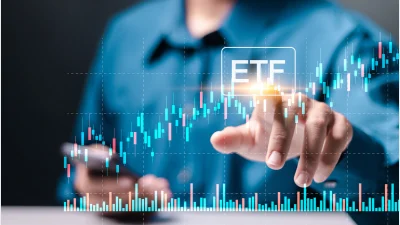Semiconductor shortage might not stabilise until 2023



Given the increasingly important role played by semiconductors in a rapidly digitising global economy, Janus Henderson Investors (JHI) believe the shortfall in semiconductor will have far reaching knock-on effects as demand continues to outpace supply.
JHI portfolio manager, Denny Fish, and analyst, Shaon Baqui, said semiconductor producers faced an uphill battle in meeting rising demand with “optimistic” estimates predicting it would not fully subside until mid-2022 while others believed early 2023 was more likely.
“The challenge presently facing manufacturers is that the slope of the demand curve has steepened during the pandemic, meaning chip makers are scrambling to reach an increasingly higher target,” they said.
“Foremost, the demand for semiconductors has hit an inflection point and, in our view, there is no going back as an increasing share of global economic activity occurs digitally.
“Given the complexity of semiconductor fabrication, additional capacity cannot simply sprout up. Since demand continues to outpace supply – and there are no major greenfield facilities coming online until late 2022 – we share the concern that the market for chips will become even tighter in coming months.”
Part of the reason for an increase in demand for semiconductors was because rising demand for working from home and developments with the world’s automotive fleet, including advanced driver assistance systems and vehicle electrification.
They said further developments surrounding the chip shortage should merit the attention of all investors.
On the supply side, Fish and Baqui believed the current imbalance would create even more tailwinds for capital equipment makers that enable semiconductor production.
“Should markets become more localised, the number of buyers for this complex machinery will likely grow,” they said.
“While the nuances of the industry structure and semiconductor cycle are typically the domain of tech investors, the global economy’s increasing dependence upon the complex functionality of cloud- and AI-enabling chips as well as process-oriented analogue chips, means that further industry developments should command the attention of all financial market participants.”
Recommended for you
State Street Investment Management has taken a minority stake in private market secondaries manager Coller Capital with the pair set to collaborate on broaden each firm’s reach and drive innovation.
BlackRock Australia plans to launch a Bitcoin ETF later this month, wrapping the firm’s US-listed version which is US$85 billion in size.
Global year-to-date inflows into active ETFs are 87 per cent higher than the same time a year ago at US$447.7 billion.
Financial advisers have expressed concern about the impact including private market exposure is having on their tracking error budget, according to MSCI.











